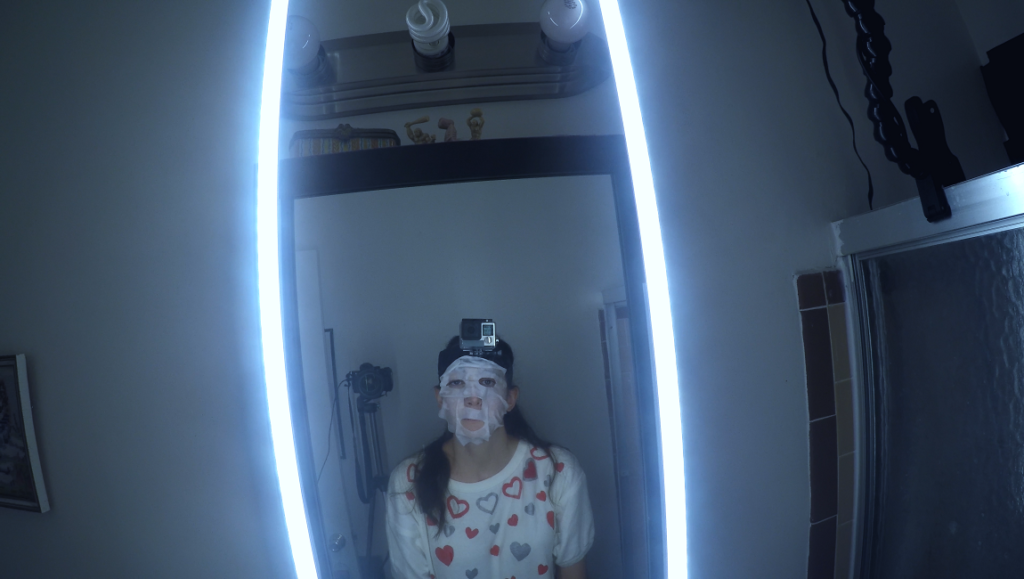I Blame Society is a cutting antihero showcase for director-star Gillian Wallace Horvat.
Wickedly funny and sharp enough to draw blood, I Blame Society is the feature debut from writer-director Gillian Wallace Horvat, who also stars as a warped version of herself. The semi-autobiographical film starts with a compliment: that Gillian would make a good murderer. Teasing the idea out to its logical, if bloody, conclusion, Gillian becomes increasingly fascinated with not only her own potential for violence, but also on the documentation of it, filming herself obsessively and creating her magnum opus while alienating (and murdering) the people in her life. From its painfully awkward first scene, I Blame Society is not exactly a comfortable watch. Horvat, as an actress, is still somewhat green, her dialogue a bit stilted and overly mannered in places, and it results in aura of voyeurism that a lot of mockumentaries strive to avoid. Throughout the entire film, then, this performative affect makes it impossible to shake the idea that you are both watching and somehow being watched, with every element of the film trained on Gillian’s desperate need for attention. It would be fair to think that sounds unbearable, but in execution it adds to the film’s charm; Horvat’s performance might be technically flawed, but it’s the sort of happy accident that works in the film’s favor, imbuing proceedings with a relatable, only mostly harmless narcissism.
In the age of the 24-hour meme cycle, satire, irony, and earnest critique can easily lose footing. Smartly, then, I Blame Society chooses both its protagonist and her society as the dual targets for its satire, making it far more incisive and effective than films that try to laugh at everything but themselves. While Gillian is blissfully unaware of the absurdity of her situation, Horvat uses this ignorance to navigate a wide spate of issues, from the exploitation of women in Hollywood to how whiteness, and white womanhood specifically, situates individuals above the law. In a particularly chilling scene involving Gillian preying on a homeless man — a tactic that she later repeats — we are reminded that while Gillian sees herself as some kind of scrappy underdog, she still has the suitable privilege to get away with a murder spree. Her main conflict over the isn’t one of moralism, but rather how she can reconcile her talent for murder with her desperate need for validation — after all, as she points out, one of the drawbacks of being a murderer is that you can’t take credit for it. Despite being overused once or twice, one of the film’s central jokes about “strong female leads” could have felt cringe-inducing in any other script, but Horvat offers a genuine, surprising interrogation of what this actually means. The past decade has seen a number of films about morally ambiguous or even downright awful women that complicate and blur their feminist leanings — think Midsommar and Gone Girl respectively — but which might have viewers quietly thinking “Good for her.” Horvat makes no such appeal to our sympathy. Gillian is deliciously awful, aggressively self-centered, and wholly manipulative, but manages the tricky task of coming off just as likable as she is hateable, addressing meaningful cultural rhetoric without ever claiming any ethical footing. In many ways, she’s the kind of feminist (anti-)hero our generation deserves.
Published as part of Before We Vanish | February 2021.


Comments are closed.